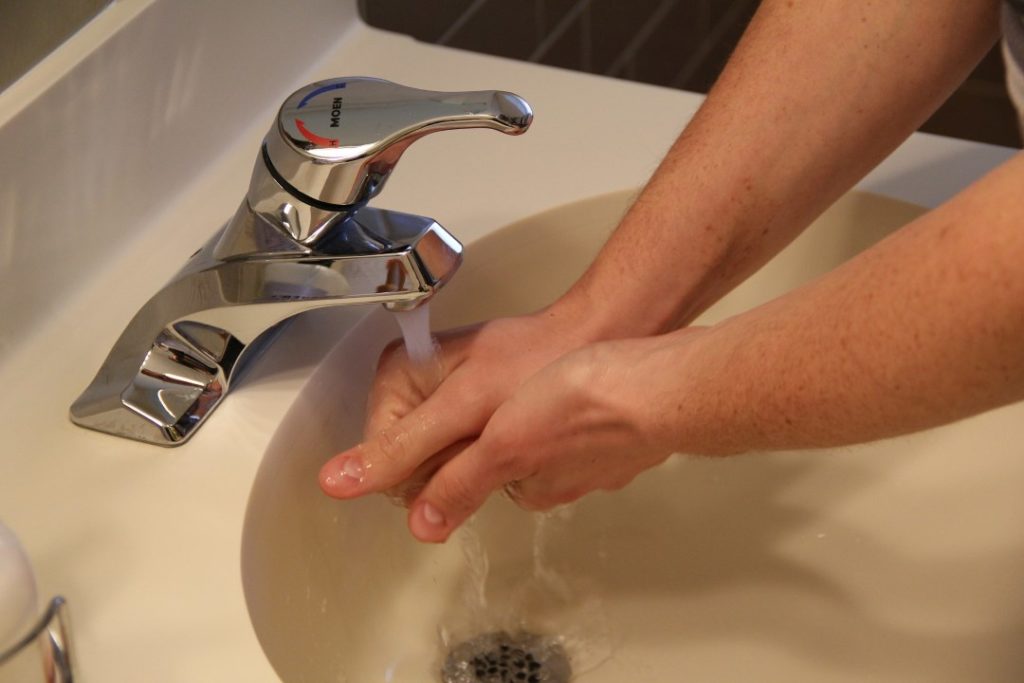
Contents
Transmission of Typhoid Fever
Typhoid fever transmission takes place when a person eats food or drinks beverages that have been handled by a person shedding the Salmonella typhi bacteria. There are various routes where this bacteria will spread- Fecal-oral transmission route: It means that S. Typhi is passed in the feces and sometimes in the urine of infected people. You can contract the infection if you eat food handled by someone with typhoid fever who hasn’t washed carefully after using the toilet. You can also become infected by drinking water contaminated with the bacteria. The majority of people get infected with typhoid bacteria while traveling to typhoid prone areas and spread it to others through the fecal-oral route. Typhoid carriers: Even after treatment with antibiotics, a small number of people who recover from typhoid fever continue to harbor the bacteria in their intestinal tracts or gallbladders, often for years. These people, called chronic carriers, shed the bacteria in their feces and are capable of infecting others, although they no longer have signs or symptoms of the disease themselves.
- Transmission Through Contaminated Food or Water: You can get typhoid fever if you eat food or drink beverages that have been handled by a person who is shedding typhoid fever bacteria (Salmonella typhi), or if sewage contaminated with typhoid fever bacteria gets into the water you use for drinking or washing food. Therefore, typhoid fever is more common in areas where handwashing is less frequent and where water is likely to be contaminated with sewage
- Flies may cause human infection through transfer of the infectious agents to foods. Pollution of water sources may produce epidemics of typhoid fever when large numbers of people use the same source of drinking-water.
Prevention
In many developing nations like India, the public health goals that can help prevent and control typhoid fever through safe drinking water, improved sanitation and adequate medical care may be difficult to achieve. For that reason, some experts believe that vaccinating high-risk populations is the best way to control typhoid fever.- Vaccination: Vaccines are generally recommended if you are traveling to areas where typhoid is endemic. Vaccines are not 100 percent effective, and require repeat immunizations, as vaccine effectiveness diminishes over time.
- Because the vaccine won’t provide complete protection, follow these guidelines when traveling to high-risk areas:
- Wash your hands. Frequent hand-washing with hot, soapy water is the best way to control infection. Wash before eating or preparing food and after using the toilet. Carry an alcohol-based hand sanitizer at times when water isn’t available.
- Avoid drinking untreated water. Contaminated drinking water is a particular problem in areas where typhoid fever is endemic. For that reason, drink only bottled water or canned or bottled carbonated beverages, wine and beer. Carbonated bottled water is safer than uncarbonated bottled water.
- Ask for drinks without ice. Use bottled water to brush your teeth, and try not to swallow water in the shower.
- Avoid raw fruits and vegetables. Because raw produce may have been washed in unsafe water, avoid fruits and vegetables that you can’t peel, especially lettuce. To be absolutely safe, you may want to avoid raw foods entirely.
- Choose hot foods. Avoid food that is stored or served at room temperature. Steaming hot foods are best. And although there is no guarantee that meals served at the finest restaurants are safe, it is best to avoid food from street vendors as it is more likely to be contaminated.
Prevent spreading the infection to others If you’re recovering from typhoid fever, these measures can help keep others safe:
- Take your antibiotics. Once diagnosed with typhoid, doctors prescribe antibiotics to kill the bacteria. It is very important to complete the full course of antibiotics to prevent recurrence of the infection.
- Avoid preparing food for others until it is confirmed that you are no longer contagious. It will not be possible to return to a job in the food service industry until tests have confirmed there is no risk of you passing typhoid bacteria.
- Wash your hands often. This is the single most important thing you can do to keep from spreading the infection to others. Use hot, soapy water and scrub thoroughly for at least 30 seconds, especially before eating and after using the toilet.
Visitor Rating: 5 Stars
Visitor Rating: 5 Stars